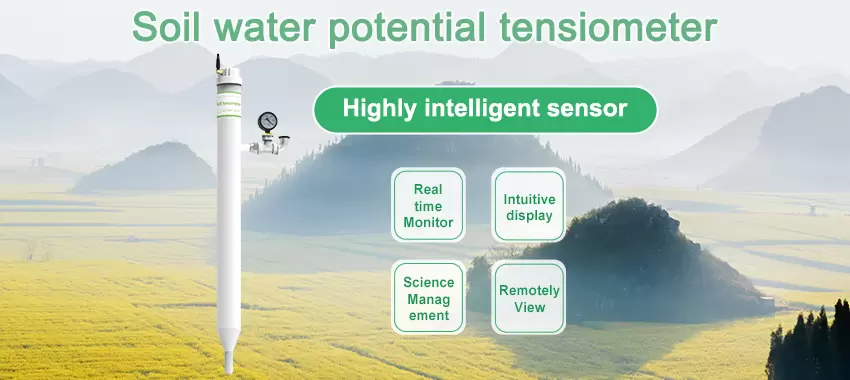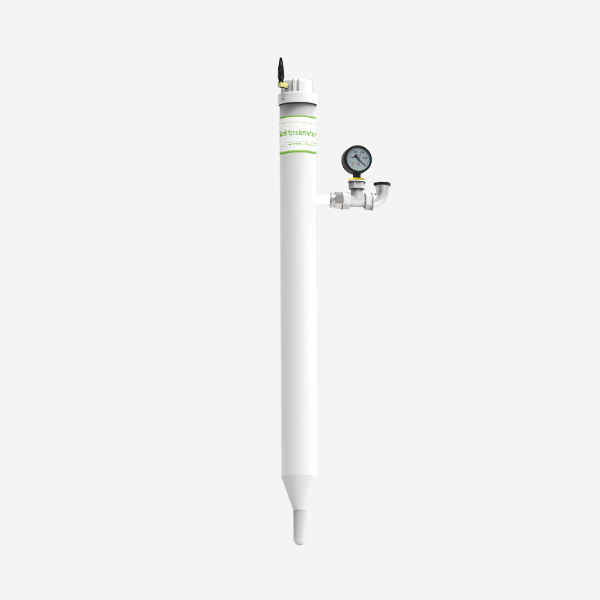Soil hygrometer sensors
Soil hygrometer sensors are devices used to measure soil moisture content accurately. The sensors detect changes in soil water tension and temperature to determine the amount of water available to plants. Soil hygrometer sensors come in various types, including tensiometers, gypsum blocks, capacitance sensors, and neutron probes.

One of the most effective ways to optimize water use in farmland is by using soil hygrometer sensors. In this article, we will discuss how soil hygrometer sensors can improve the efficiency of water management in agricultural settings.
Capacitance sensors work by measuring changes in the electrical capacitance between two plates buried in the soil. As soil moisture content increases, so does the dielectric constant, leading to an increase in capacitance. The sensors are easy to install, provide near-instantaneous measurement, and can be connected to data loggers for continuous monitoring. Farmers generally prefer capacitance sensors because they are cost-effective and low-maintenance.
Tensiometers, on the other hand, work based on the principle of water potential measurement. Tensiometers operate by installing a ceramic cup with a porous membrane into the soil that connects via a tube to a pressure gauge. When the soil gets dry, it causes a decrease in the hydraulic pressure inside the cup changing the dial reading which points out the soil is dry or needs watering. Tensiometers offer accurate measurements of soil moisture levels and are widely used in irrigation scheduling. However, farmers have to refill the sensors manually and handle them with care to avoid damage.
Advantages of using a soil hygrometer sensor

Using soil hygrometer sensors can improve irrigation efficiency, save water and increase crop yields. By knowing how much water plants need, farmers can apply the optimal amount of water and avoid over or under irrigation, which can lead to plant stress, disease and nutrient deficiencies.
Combining soil hygrometer sensors with irrigation systems can improve precision agriculture, enabling precise and targeted use of water in specific areas of the field. This method reduces the evaporation loss of excess water from the soil surface, providing better water use efficiency for agriculture.

Soil hygrometer sensors also help conserve water by reducing unnecessary water use in irrigation applications. Adequate measurements obtained through sensors reduce water waste and associated water bills, thereby saving farmers costs as well.
Finally, the use of soil hygrometer sensors helps increase crop yields due to proper application of water levels. Incorrect watering directly affects crop yield; Too little water shortens the growth cycle and reduces total production, while too much water leads to stunted growth, disease spread and crop death.
In summary
Incorporating soil hygrometer sensors into crop production operations is an excellent way to optimize efficient water resource management. These advanced sensors help to understand exactly how much water a crop needs, resulting in increased crop productivity, resource savings and environmental benefits. With the implementation of these technologies, farmers have seen significant improvements in overall agricultural profits and sustainability.
hey there and thank you for your information – I have certainly
picked up something new from right here. I did however expertise some technical issues using
this site, since I experienced to reload the site a lot of
times previous to I could get it to load properly.
I had been wondering if your web hosting is OK? Not that
I’m complaining, but sluggish loading instances times will very frequently affect your placement in google and can damage your high
quality score if advertising and marketing with Adwords.
Well I am adding this RSS to my email and could look out for much more of your respective intriguing content.
Ensure that you update this again soon.
My homepage: nordvpn coupons inspiresensation (url.hys.cz)
nordvpn code
350fairfax
What i don’t realize is in truth how you’re no longer actually much
more neatly-favored than you might be now. You are so intelligent.
You recognize therefore significantly relating to this subject, made me for my part consider it from numerous varied angles.
Its like men and women don’t seem to be fascinated unless it is
something to accomplish with Woman gaga!
Your own stuffs outstanding. At all times deal with it up!